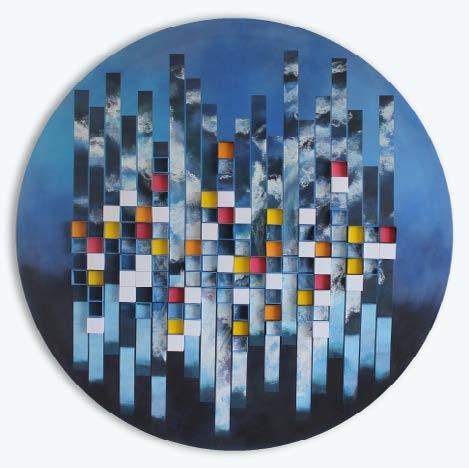The Bêbeda
Carmelinda Scian
That August the scorching sun was melting the tar on the main highway, creating ghostly puddles in the distance that sparkled like midnight diamonds. The Bêbeda walked into Antonio’s Taberna dressed in a long sleeve black dress and thick black stockings. She introduced herself as Amelia Fortuna and ordered a gallon of red wine to be delivered to her lodgings across the street on Sundays, Tuesdays, and Fridays. A bit of soup, too, or fish stew, a few olives, a chunk of bread. Lone men sitting in the tavern, poor laborers without wives or families to cook for them, watched and listened with forks and spoons suspended in mid-air. It wasn’t often they’d seen or heard someone displaying such extravagance in our dusty town. Especially a woman. The story spread quickly, people hungry for anything promising escape from lives wedged between the evanescence of their dreams and the reality of their meagerness. By evening everyone heard about the Bêbeda—the drunkard—and laughed. Everyone laughed. I wondered what everyone found funny about a drunken woman. The Bêbeda wore her thick black stockings that peered from under long black dresses and skirts for the rest of the searing summer. It was so hot even the stray cats and dogs were out of sight, likely taking refuge in some shady spot. To my mother’s thinking—and my mother was always thinking—the Bêbeda had to be mourning the death of someone close, perhaps a husband or a child. But the Bêbeda never said. “A penance,” my mother would remind everyone, as though she had access to information no one else had. “Woolen black stockings in the sweltering summer heat has to be self-flagellation.” “Stay away from the Bêbeda,” she warned me, finger pointing at my nose. “Who knows what she ran away from or what she might do.” I heeded my mother’s warnings. I had to. But the following summer—I must’ve been seven or eight, old enough to be sent on errands—the Bêbeda spoke to me for the first time. The last time, too—I was never close enough to her again to invite conversation. Never dared. In those days no one in town had refrigerators. Every morning, João, the fisherman, came selling fish caught in the night and Joaquim, the milkman, delivered milk to our door carried in a large aluminum jug he poured into a liter measure and then into our blackened aluminum milk pot. Bread was purchased daily from the two bakeries, wine from Antonio’s Taberna, and vegetables, fruit, and groceries were available in two places but bought mainly from one establishment with a store front during legal operational hours and a backdoor-counter after it shut down. Even the enforcing official was seen several times walking away from the backdoor-counter in the dusk, but no one said anything. Such rules were for the rest of the country, not for us. The hamlet where we lived had no electricity. The five or six houses stood almost like an afterthought on the other side of the railroad tracks, running parallel to the highway. Behind the five or six houses was an orange grove, the river, farms and vineyards, and, a distance away, the Pinhal, the pine and eucalyptus woods where everyone picnicked on Sundays. Oil lamps lit up the night, food was cooked on kerosene stoves, and water (the same all over town) came from open wells where cats and, sometimes, unhappy souls drowned. Blue Mesa Review | 21







